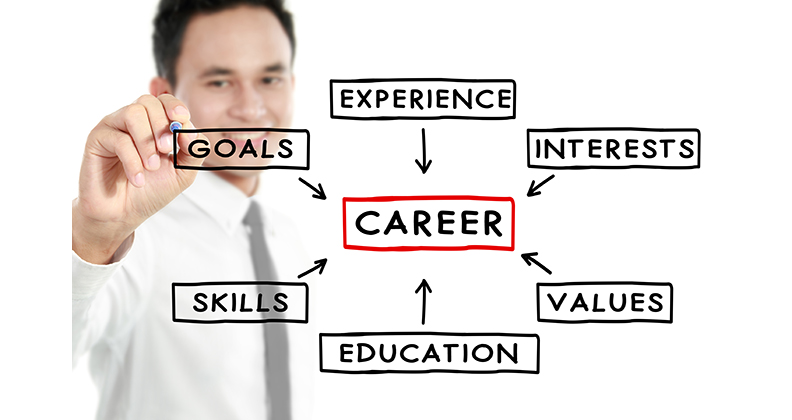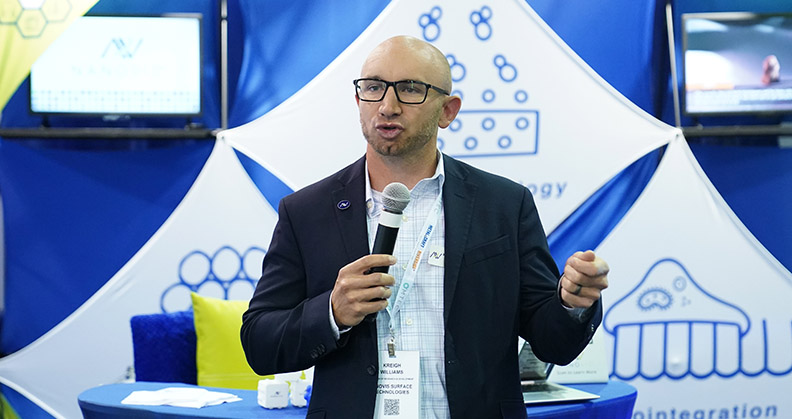
Ah, January. New year, new you! Rewarding resolutions! Exercise challenges! The noise of self-improvement can be a bit overwhelming, if not inspiring.
As you devise reasonable ways to improve your well-being, you should consider what you can do to advance your career in orthopedics — whether that involves a major pivot or minor change of direction.
“Decide where you want to be in five or six years, and take ownership in the short- and long-term goals you set to make it happen,” said Taura Prosek, an executive coach and career strategist at global consulting firm Stewart Leadership and creator of Lead Your Career, a step-by-step guide to achieving professional fulfillment.
Prosek’s 24-year career in finance, sales and human resources began at GE Healthcare, where she managed the company’s intern and co-op programs for engineering students.
She recommended setting career goals based on your values, motivations and needs, skills and talents, and the demands in the marketplace.
“Your next logical step sits at the intersection of those elements,” Prosek said. “Professional development should align with what you’re working toward. Find out what skills and background are needed for your desired role and work to develop those skills.”
Prosek offered this advice to help you achieve professional fulfillment as you calculate where your career path is headed.
Make Concrete Plans
Medical device leaders develop strategic plans and action items to ensure their teams hit short- and long-term goals. Take the same approach to plot out the course of your career.
“You’re the CEO of your professional growth,” said Prosek, who suggested putting your future goals and plans in writing. Revisit the document and use it as a guide during personal strategic planning sessions every six months.
Note your interests, values, and needs at the top of the document, followed by your skills, strengths and talents. Be as specific as possible.
“Jotting down a few general goals without understanding the long-term career aspiration you’re driving toward won’t allow you to achieve meaningful results,” Prosek said.
Recognize gaps between your current experience and future goals, and work to fill them. For example, said Prosek, an orthopedic device engineer with an interest in management could ask to join the interviewing process of prospective new hires or volunteer to sign up for classes on improving professional communication skills.
Prosek emphasized the importance of having a realistic view of your current capabilities without selling yourself short. She recalled an interaction with a young engineer at GE Healthcare who wanted to become a project manager. The engineer thought he’d need to leave the company to develop the skills required to take on the role, but Prosek’s coaching helped to change his mind.
She asked him how many projects he worked on simultaneously and what his responsibilities entailed. The conversation revealed he had to juggle up to six projects at a time and oversaw the development of action plans and resource allocation.
“I told him he was already a project manager,” Prosek said. “Writing down your skills and talents can be a rewarding exercise and show you’re more qualified for advanced roles than you might think. When reflecting on your experience, appreciate and recognize your current abilities.”
Lean Into the Stretch
Don’t feel like you’re not capable of evolving into a new role if your background and skills aren’t exact matches for the qualifications of the “ideal” candidate. “There should be some stretch involved in a new position,” Prosek said. “Expect to be challenged and look for growth opportunities.”
Gaps between current skillsets and new responsibilities should be anticipated and embraced.
“Acknowledge the gaps that exist during the interview process, and talk about what you’ll do to overcome them, the learning curve involved, and share that you’re ready to adapt and overcome the challenges involved,” Prosek said.
Forward-thinking organizations should value internal mobility and support employees who want to take on additional responsibilities or advance their position within the company.
Keep in mind that professional advancement doesn’t necessarily require climbing to higher rungs on the career ladder. Lateral moves can also boost your resume and build your experience, according to Prosek.
“I’ve taken several roles throughout my career that could have been viewed as demotions, but the positions expanded my skills in specific areas that were of personal interest from a longer-term perspective,” she said. “Lateral moves can help you become more knowledgeable in your industry and the inner workings of your company.”
In that sense, advancing your career doesn’t necessarily require changing jobs. “Self-development could involve becoming more active in monitoring industry trends or analyzing the competitive landscape,” Prosek said.
Regardless of where you are in your career, don’t ever get comfortable with the status quo. “You’ll eventually outgrow your current position because of changes in the work environment and the marketplace,” Prosek said. “You can’t afford to remain stagnant, even if you’ve held the same position for 10 or 15 years.”
Network to What’s Next
Connect with professionals from within your organization or at outside firms and learn from their career trajectories. LinkedIn can be an invaluable resource. Find people in positions you’d like to have and review their profiles to get a sense of how they progressed through their organization or the industry. Send them a connection request and ask for a few minutes of their time for an information interview, during which you can discuss their professional background and ask for helpful advice.
Finding mentors who can help guide your career doesn’t come naturally to many people. Start to build your network of professional connections — think of them as your personal career advisory board — by reaching out to former colleagues you might have lost touch with or new contacts you want to connect with in the future. Most professionals will be glad to provide feedback or insights about your career because they received the same valuable input at some point and understand the benefits of networking.
Also, don’t get too hung up on the “mentorship” label. When Prosek worked as a talent recruiter at GE Healthcare as a twenty-something in the 1990s, two close colleagues gave her career advice she follows to this day.
“I didn’t consider them mentors at the time, but that’s what they were,” she recalled. “They told me to make sure I’m always moving toward an opportunity. That’s proved to be very insightful and has helped me make career decisions in a strategic and thoughtful way.”
It’s never too early or too late to prepare for what’s next with passion and purpose. Create a plan to make it happen in an intentional and strategic way. Prosek suggested focusing on what you’re good at, what you enjoy doing and working where you feel valued. If you do that, she said, your next career move will become apparent.
DC
Dan Cook is a Senior Editor at ORTHOWORLD. He develops content focused on important industry trends, top thought leaders and innovative technologies.




